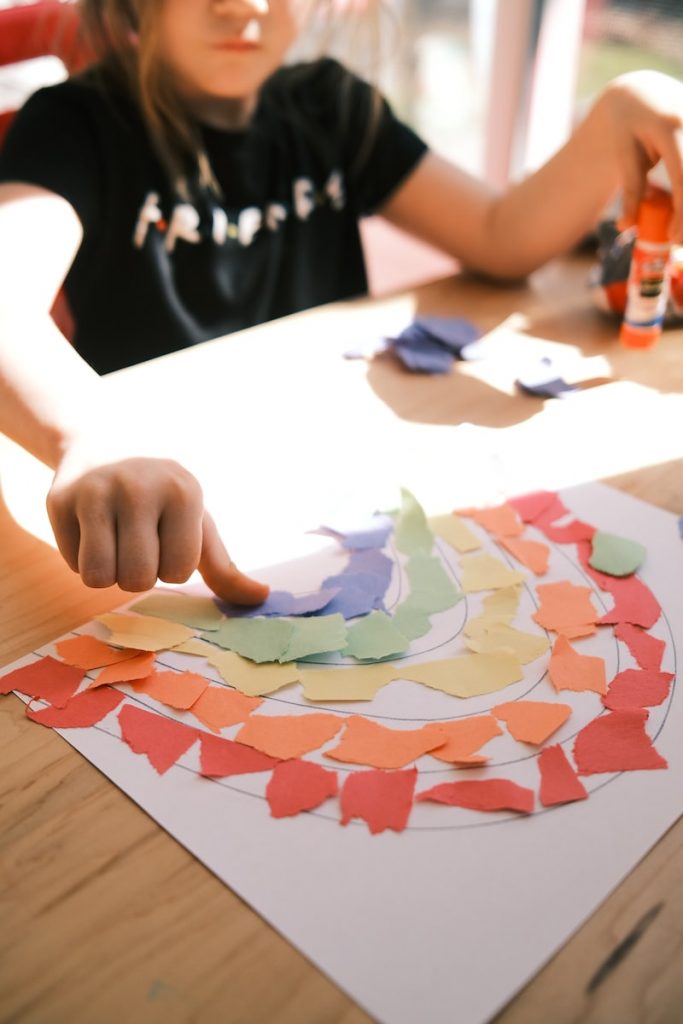Home Education and Homeschooling – aren’t they one and the same?
Reading about home education can be as complicated as actually educating at home! The terminology of home education varies as much as the methodology and it can be contentious: UK parents whose children study at home tend to prefer the term ‘home education’ instead of ‘homeschooling’, the term used by American home educators and the more commonly used terminology to describe the act of children learning outside of the ‘school’ system.
Both mean to provide an education outside of a conventional school environment, right? So why is ‘homeschooling’ disliked?
Some home-educating parents feel ‘homeschooling’ implies replicating the school environment in the home, a methodology that lots of home educators reject, and, post-Covid, the term (and the meaning behind the term) ‘homeschooling’ has been tainted by the lockdown-style of facilitated learning that many schools provided to students. For most parents who found themselves thrown in at the deep-end of supervising education whilst continuing to work, while dealing with the students as your children whilst they’re reeling from their entire routines having been upended, homeschooling was utter torture. Lockdown learning was not representative of what ‘home education’ means, looks or feels when you and your child can write the curriculum, choose resources and plan your days with flexibility.*
Likewise, whereas the term ‘school’ is often linked linguistically as synonymous with, or inclusive of, curriculum; ‘education’ is a broader term that better reflects the autonomous aspect of educating children at home.
…Yikes! Wasn’t this school-at-home thing hard enough already?! When we started home-educating our children I found myself constantly trying to change the language I used depending on who I was conversing with, which felt both tiring and pointless: All of us, home-educators and homeschoolers, just want the best for our children. However, for clarity’s sake, I have provided my interpretations of the language used to describe educating children outside of a traditional school environment, as well as its usage on this site.
Home Education
The complete education learning pathway. Home education refers to the long game, the complete process of educating outside of ‘school’ and the education pathway children age (or qualify) out of.
The term home education, in our homeschool, includes academic study, skills development and behavioural and social studies.
Home-Schooling
To me, homeschooling is the act of educating at home, not the process: We ‘home educate our children’ and ‘homeschool’ day-to-day. So homeschool refers to the actual lessons, the organisation around the ‘school’ part of home-ed, the routine or schedule we’re using, and sometimes when talking about learning goals.
Home-Educator
The person providing & facilitating education to a child outside of conventional school.
Home-Schooler/ Home-Schoolers
Homeschooler can be used to describe the person providing education when referring to home-educating as a ‘job’ role: the responsibility for the child’s education is theirs.
Homeschooler also refers to the child receiving their education at home.
Homeschoolers educate homeschoolers…
Pupil / Student / Homeschooler
I refer to homeschoolers, pupils, students or home-learners depending on the context.
When using ‘pupils’, I’m referring to the child when they are actively being taught; ‘student’ is used more when the pupil is working on independent study; ‘homeschooler/home-learner’ as a general description.
‘Home’
Just because home and school/education are linked together when describing this style of education path, that doesn’t mean school has to be completed at home! Getting outside in nature, joining co-op homeschooling classes and community courses, using coffee shops and libraries as classrooms, reading in the park – the ‘home’ in ‘home education’ refers simply to an alternative to a school classroom.
And yet home means so much more. Home is a space to explore safely without restrictions. Home is a space to be comfortable and uninhibited. Home is a space to grow, to learn; a space where we educate ourselves and each other. Home is where we learn, teach, play and share.
Home education is the balance between school and home, an academic exploration that provides the teaching, practice and support needed to (generally) culminate in qualifications that validate the educational part, in an environment where students are encouraged to thrive in ways over and above academics. Home education is guiding your children through childhood, helping them build the foundations to use on the path they choose to take in adulthood.
ps. Despite the pushback in terminology against homeschooling, home educating doesn’t mean you have to be the person actively teaching your child: Facilitating an education can take many forms and you don’t have to be the teacher.
*Lockdown-learning, for all its difficulties – and even for those us home educating as the status quo before lockdown restrictions came in, homeschooling in a pandemic was hard! – one positive side effect was that for many parents the pandemic gave them a glimpse of how much happier their child was and how much progress they made simply by not being in a school environment. For many parents, the Covid pandemic lockdowns were the stimulus for rethinking their child’s ‘schooling.’


